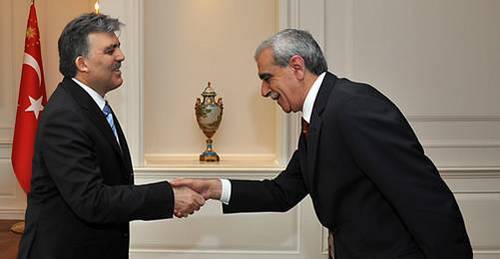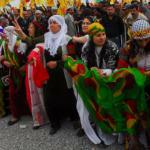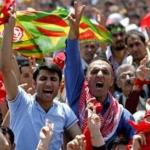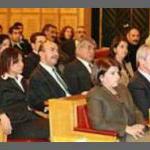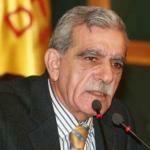Following recent statements by politicians concerning the Kurdish question, Ass. Prof. Mesut Yeğen, sociologist at the Middle East Technical University in Ankara, has pointed out what is “new”.
Government seems to be changing attitude
Atalay’s words: When the Minister of the Interior Beşir Atalay gave information about the Public Order and Security Undersecretariat, he said, “We support the words of the Prime Minister in 2005. In that year, Erdoğan had gone to Diyarbakır as a PM for the first time, and had said, “The Kurdish question is my problem.” According to Yeğen, the fact that Atalay said these words after the operations against the pro-Kurdish Democratic Society Party (DTP) recently, means that there has been a change in attitude.
Yeğen also attached importance to Atalay’s comments on a recent interview of Milliyet newspaper’s journalist Hasan Cemal with PKK leader Murat Karayılan. Atalay said, “We observe everything that is happening carefully, we are taking careful notes.”
PKK also shifting direction
Karayılan’s words: According to Yeğen, one of the most important issues in the interview of Karayılan by Cemal was that the PKK has decided not to insist on constitutional change on the Kurdish question before laying down arms. This, so Yeğen, means that the PKK does not expect comprehensive reforms. Karayılan says clearly in the interview that the PKK does not want autonomy or a federal system. Yeğen also believes that the PKK is trying to shift towards being an urban organisation which can be effective without violence.
The academic believes that the utterances by Atalay and Karayılan show that indirect negotiations have started. A big actor in this process will be Abdullah Gül, Turkey’s President. “It is also important that Gül recently met Hasan Cemal, as if the government is trying not to draw too much attention to it.”
President Gül and government spokesperson Cemil Çiçek met Cemal this week. In addition, journalist Taha Akyol wrote in the Milliyet newspaper that the new Minister of Foreign Affairs, Ahmet Davutoğlu, wanted to meet Cemal.
Last week, on his return from Prague, Gül had told journalists that the Kurdish question was “Turkey’s priority. It definitely needs to be solved.”
Opposition to be expected
However, Yeğen warned people from getting the impression that the PKK would immediately lay down arms. “It looks as if they are walking along the same road, but still on different sides of the road. The dynamics that can force them onto different paths are still very powerful.”
As an example he gave the speech that Devlet Bahçeli, leader of the Nationalist Movement Party (MHP) made in parliament on Tuesday (12 May). “It looks like the MHP will strongly oppose this process. They are opposing it because that is what is expected of them. If someone could explain the importance of this to the MHP, they might follow a softer line of opposition.”
Public opinion needs to be prepared
Yeğen said, “When the PKK lay down their arms, the Kurdish question will not be solved. We will only start talking about the issue. But the important thing is to talk about it without the pressure of guns. What the DTP has to do is to prepare the public for this process in some way.”
In a speech in the DTP’s parliamentary group meeting, party co-chair Ahmet Türk had said that a “monumental opportunity” for a solution had developed, emphasising that the process of debate should not be cut short.
Journalist İsmet Berkan of the Radikal newspaper wrote that in a meeting with Prime Minister Erdoğan he was told that Erdoğan was considering lifting a ban on Kurdish place names and limits on Kurdish broadcasting hours in local media organs, and also creating Kurdish departments at universities.
Yeğen believes that the public is ready for such steps and that consensus, including the General Staff, has long been reached. However, he pointed out that the most important issue was that the PKK seemed ready to disarm in reaction to a limited policy of reform. (TK/AG)





